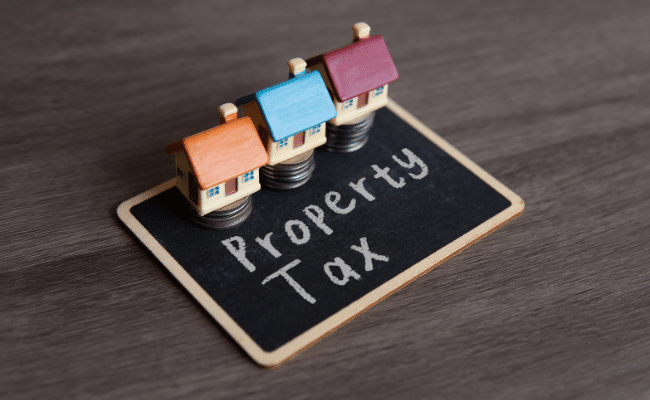Capital Gains Tax on Property: What you Pay and When
Landlords are liable for Capital Gains Tax when they sell a buy to let property. Here’s a guide to how much Capital Gains Tax you have to pay when you sell a buy-to-let property and how landlords may be able to cut their Capital Gains Tax bill.
Contents
- What is capital gains tax?
- Capital gains tax on property
- How much capital gains tax is charged on a buy-to-let property?
- What is the current CGT allowance?
- Deductions for landlords
- Can I claim a loss against capital gains tax?
- Capital gains tax reliefs
- How to work out capital gains on a buy-to-let
- How to pay
- When to pay
- CGT and buy-to-let limited companies
- How buy-to-let landlords can save on capital gains tax

- Moubin is Founder and CEO of GetGround, the UK's only buy-to-let limited company creation and management platform. Training initially as a medical doctor, Moubin then worked for Apax Partners and later McKinsey & Company before founding GetGround in 2019.

What is Capital Gains Tax?
There are a number of different taxes landlords have to pay as part of the buying, operating and selling of their residential properties.
Capital Gains Tax or CGT for short is a tax which is charged on the gain or profit which you make when you dispose of (or sell) certain things.
Capital Gains Tax is levied on what are known as chargeable assets. These include personal possessions worth more than £6,000 (except cars), stocks and shares, business assets and property that isn’t your main home.
Capital Gains Tax is only charged on the gain you make after the deduction of certain allowances and not on the total value of the sale.
Capital Gains Tax on Property
Capital Gains Tax is generally payable when selling investment property. Capital Gains Tax is not payable on a property you live in yourself, however. A property you live in yourself as your main home is eligible for Private Residence Relief or PRR, and no Capital Gains Tax is payable when you sell it.
You do not pay CGT when property is gifted to your husband, wife or civil partner.
Capital Gains Tax is usually payable on buy-to-let property and on second homes.
How much Capital Gains Tax is Charged on a Buy-to-Let Property?
Capital Gains Tax is charged at a higher rate on residential property than on other assets.
Capital Gains Tax on property is currently charged at a rate of 24% for higher rate and additional rate taxpayers or 18% for basic rate taxpayers on the amount of the chargeable gain.
In the 2025 tax year onwards, Income tax rates and bands (not Scotland) are:
| Basic Rate | £12,571-£50,270 |
| Higher Rate | £50,271-£125,140 |
| Additional Rate | over £125,140 |
What is the Current CGT Allowance?
Everyone is entitled to an annual CGT allowance. This allowance can be deducted from the chargeable gain.
In the 2025 tax year, the Capital Gains Tax allowance is £3,000.
Couples who jointly own a property can combine their CGT allowance and so benefit from an annual CGT allowance of £6,000.
Deductions for Landlords
When selling a buy to let property you can deduct some costs involved with buying and running it in order to reduce the taxable amount.
Valid deductions for CGT include:
- Costs when buying a buy-to-let, such as conveyancing costs and financial fees.
- Stamp Duty when buying the property.
- Selling costs when selling a buy-to-let, including estate agent’s fees and legal fees.
- The cost of capital improvements to the property.
You cannot deduct maintenance costs when calculating CGT on the sale of a buy-to-let.
You cannot deduct mortgage interest when calculating CGT on the sale.
Can I Claim a Loss Against Capital Gains Tax?
You can claim losses for CGT purposes. If you made a capital gain on one (or more) buy to let properties you sell but a loss on others you can set that allowable loss against the gain on another buy to let property or properties.
When you make a loss, the loss is deducted from the gains you made in the same tax year.
If your total taxable gain is still above the tax free allowance you can deduct unused losses from previous tax years. If they reduce your gain to the tax free allowance you can carry the loss forward to the next tax year.
Capital Gains Tax Reliefs
Private Residence Relief
Landlords who have lived in their buy to let for a period of their ownership of it are able to claim Private Residence Relief (PRR).
Private Residence Relief means that you should not have to pay CGT on the gain in a property’s value during the time it was your main home.
If for example, you owned a buy-to-let for 20 years but lived in it yourself for 5 years, you may claim PRR for 5 years. You may also claim an additional nine months CGT-free period to allow you to sell it.
Landlords who may wish to claim Private Residence Relief should aim to keep records like utility and council tax bills. This is where paperwork like challenging a council tax bill previously can really help to show a timeline for how long someone has lived at the property and prove that the buy-to-let was actually their main home during the period they are claiming for.
Letting Relief
If you lived in your property at the same time as your tenants you may be able to claim Letting Relief on gains you make when you sell the property.
You can get the lowest amount of either the same amount you got in Private Residence Relief, £40,000, or the same amount as the chargeable gain you made while letting out part of your home.
Furnished Holiday Lets
If you are purchasing a furnished holiday let, then it will be classed as a business asset. This may entitle you to claim one of a number of allowances that might enable you to reduce, defer or avoid Capital Gains Tax on your buy-to-let.
- Business Asset Rollover Relief (BARR): If you sell a property and reinvest it into another business asset this may enable you to rollover the gain until the new asset is sold.
- Business Asset Disposal Relief (BADR): May enable you to claim a reduced rate of CGT on your gain.
- Gift Holdover Relief: Gifting a holiday let may enable you to avoid payment of CGT when it is gifted. The giftee will need to pay CGT when they sell the property on.
How to Work Out Capital Gains on a Buy-to-Let
Work out your gain for each asset (or your share of an asset if it is jointly owned) you have disposed of in the current tax year.
Include sales of personal possessions over £6,000 (except cars), shares and investments and business assets as well as the property.
Add together the gains from each asset and deduct any allowable losses. Then you need to report and pay Capital Gains Tax if your taxable gains are above your annual allowance.
How to Pay
You can report and pay any Capital Gains Tax you owe online through the Government's website or by requesting a paper form from HMRC.
When to Pay Property Capital Gains Tax
You must pay the tax owed within 60 days of the completion of the sale or disposal.
You do not automatically receive a tax bill for Capital Gains Tax so you should not wait until the end of the financial tax year when you usually have to complete a tax return before reporting and paying Capital Gains Tax.
CGT and Buy-to-Let Limited Companies
Buy to let landlords who own their property or properties through a limited company do not have to pay Capital Gains Tax when selling them. Instead they pay Corporation Tax on the profits of their limited company.
Owning a property through a limited company can be a way of saving on Capital Gains Tax. Currently, the higher rate of CGT is 28% but Corporation Tax is only 19% (or up to 25% depending on the size of the company), so it may make sense to take this approach.
Understanding the full process of setting up a property company helps investors evaluate whether the tax benefits outweigh the additional compliance requirements and setup costs.
How Buy-to-Let Landlords Can Save on Capital Gains Tax
There are a number of ways in which landlords might be able to save Capital Gains Tax. There are also some ways in which landlords might be able to avoid Capital Gains Tax legitimately. It is absolutely essential to take professional advice on these methods however.
- When buying an investment property keep a record of all your buy to let costs and allowable expenses, which you may be able to use to reduce your Capital Gains Tax liability on a future sale.
- Time the sale of your buy-to-let properties. You may be able to reduce Capital Gains Tax on your buy-to-let by timing the sale of it, planning it for the right side of your tax year based on your other sales or income. Selling your property let agreed or tenanted, can help give you an income whilst your sale goes through. For example, if you have used your Capital Gains Tax allowance for the current tax year, delay the sale until the next tax year. Think well ahead when disposing of a portfolio of several properties.
- Own your buy-to-let jointly with your spouse, or gift it to them. This will allow you to make use of their CGT allowance as well as your own.
- Claim Letting Relief if you are entitled to it.
- Claim Private Residence Relief if you have lived in your buy-to-let at any time during the period you have owned it.
Property owners who have owned several properties, lived in them all at some point and also let them out may be able to claim Private Residence Relief on all of them.
Landlords may be able to move into their buy-to-let and nominate it as their main home prior to selling it in order to avoid liability to CGT.
- Consider owning your buy-to-let property through a limited company.
This article is intended only as general information and not intended to form financial advice or tax advice on the subject of Capital Gains Tax. It is essential to take advice from a financial adviser who is experienced in Capital Gains Tax and buy-to-let property before taking any action.
